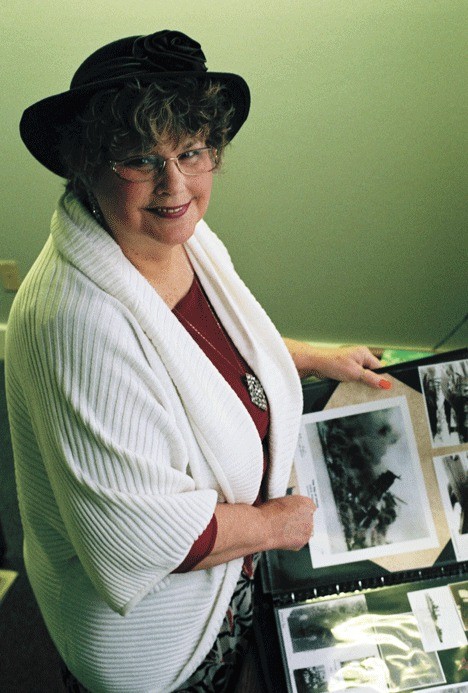Today, they’re universally a friendly lot, polite and welcoming, looking like anyone’s grandpa or grandma. But look a little deeper and they’ve got some harrowing war memories tucked inside their brains, memories that Oak Harbor author Sharon Nicholson has managed to pry out and preserve for posterity.
Now we know that Hank Koetje was on the troop ship Leopoldville when it was hit by a German torpedo, resulting in the deaths of 802 personnel. Koetje’s escape was miraculous.
Amazingly, Lee Sher, a P-51 fighter pilot, single-handedly sank a Japanese destroyer, using his airplane’s .50 caliber guns. Pictures taken by his gun camera ended up in Life magazine.
Dorothy Sheehan, a violinist and ping pong phenomenon in her youth in Idaho, joined the WAVES and finished at the top of her class in gunnery school and learned to operate the top-secret Norden bombsite.
Doc Dykers, an Oak Harbor native, was drafted into the Army infantry and was hit twice by gunshots in Italy, where he found himself in hand-to-hand combat with the Germans. His best friend, Capt. Roeder, was mortally wounded but had himself propped up in a doorway so he could shout encouragement to his men until his final breath.
Milton Littke was a crew member of a PBY the Japanese shot down in the Philippines. He and five others escaped through a hail of gunfire and hid out in the jungle for weeks. A Japanese soldier saw them fishing and shot Littke under the chin. Bleeding profusely, he was captured and spent five cruel years as a prisoner of war. During all that time, his family never knew his fate.
The stories go on and on, all recorded in Sharon’ Nicholson’s new book, “Their Place in History — An Anthology of WW II Autobiographies.”
This was a labor of love for Nicholson, who several years ago retired as an elementary school teacher in Oak Harbor. She immediately dove into her book project. She had invited some of her subjects to her classroom through the years, and she was given a list of local WW II veterans by friends who hoped she could help.
“They had no idea what their dads did during the war because they didn’t talk about it,” she said.
Through patience and perseverance, Nicholson succeeded in “getting them to talk about it.” She interviewed 20 veterans, recording their conversations, going back to each several times, and having each story checked and rechecked for accuracy. As a result, she ended up with short but compelling “autobiographies” for each of them, totaling more than 230 pages.
Nicholson marvels that the United States military in World War II was comprised of simple farm boys like the group from Whidbey Island, and yet valiantly managed to win a world war. She felt driven to tell their stories while they were still around.
She was impressed that after all the harrowing war experiences were recounted, all her subjects remained gracious. “They’re kind, they’re grateful, they’re not bitter,” she said. “You just can’t help but admire the courage that it took.”
Sadly, five of her subjects have passed on since she started the project, but their stories will live on in the pages of her book.



